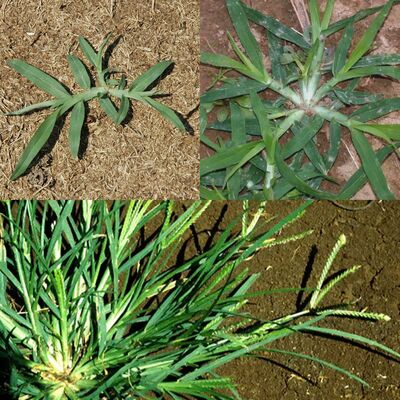Have you ever spotted goose grass in your garden and dismissed it as a pesky weed? Well, it’s time to think again! Goose grass, also known as cleavers or bedstraw, is a resilient plant that offers a whole lot more than meets the eye. From detoxification to skincare, this plant has numerous benefits that you shouldn’t overlook. Let’s take a closer look!
1. Detoxification Dynamo
Goose grass is a natural detoxifier. Its diuretic properties help flush toxins from your body, support kidney function, and enhance overall detoxification processes. You can even find it in herbal teas and detox drinks for its cleansing effects.
2. Lymphatic Support
Boost your immune system and overall health with goose grass. This incredible plant acts as a lymphatic tonic, improving waste removal and enhancing lymph circulation. It’s like giving your immune defenses a well-deserved boost!
3. Soothe Your Skin
If you suffer from skin ailments like eczema or psoriasis, goose grass might be able to help. Its anti-inflammatory properties can soothe irritation and provide relief. Simply apply it topically in the form of salves or poultices.
4. Aid Digestion
For centuries, goose grass has been used to aid digestion. It has gentle laxative properties that can relieve constipation and promote a healthy digestive tract. Plus, its mild diuretic abilities reduce bloating and water retention.
5. Nutrient-Rich
Don’t let its unassuming appearance fool you, goose grass is packed with nutrients! It’s rich in vitamins C and A, as well as iron. Adding this plant to your salads or juices can significantly enhance your dietary intake of essential nutrients.
Goose Grass in Your Garden
1. Natural Mulch and Compost Material
Instead of considering goose grass a nuisance, why not use it to your advantage? It’s a fantastic addition to compost because of its rapid growth and green nature, which enriches the compost with nitrogen. It also acts as a natural mulch, suppressing weeds and retaining soil moisture.
2. Indicator of Soil Health
The presence of goose grass in your garden can actually speak volumes about your soil health, especially its nitrogen levels. If goose grass is thriving, it suggests favorable soil conditions. On the other hand, its absence could indicate nitrogen deficiencies.
3. Control Erosion
Are you dealing with erosion on slopes or other areas of your garden? Goose grass is the answer! Its sticky and interlocking nature makes it excellent for controlling erosion. It stabilizes the ground quickly, preventing soil loss.
4. Create Wildlife Habitat
Embrace the biodiversity in your garden with goose grass. The dense growth of this plant provides shelter for small insects and other wildlife. Additionally, its seeds are a food source for birds, contributing to the ecological balance within your garden.
Frequently Asked Questions
Can I Consume Goose Grass Raw?
Yes, goose grass is edible and has been used in salads and teas. Just make sure to harvest it from areas free of pesticides and other contaminants.
Is Goose Grass Safe For Pets?
Generally, goose grass is safe for pets. However, if your pet experiences any adverse reactions, it’s best to monitor them closely and consult a veterinarian.
Can I Use Goose Grass If I’m Pregnant?
Pregnant individuals should exercise caution when using herbal remedies, including goose grass. It’s always recommended to consult with a healthcare provider before use.
Please note that the information provided here is for general informational purposes only and should not replace professional advice. Always consult with healthcare professionals or qualified gardeners before using goose grass for medicinal or gardening purposes, especially if you have specific health conditions or unique garden needs. Proper plant identification is crucial before consumption or use.
Goose grass is much more than just a weed. It’s a versatile plant that offers multiple health and gardening benefits. The next time you come across goose grass in your garden, take a moment to consider its potential before deciding to remove it. You might just find that it can be a valuable ally for your health and garden!
